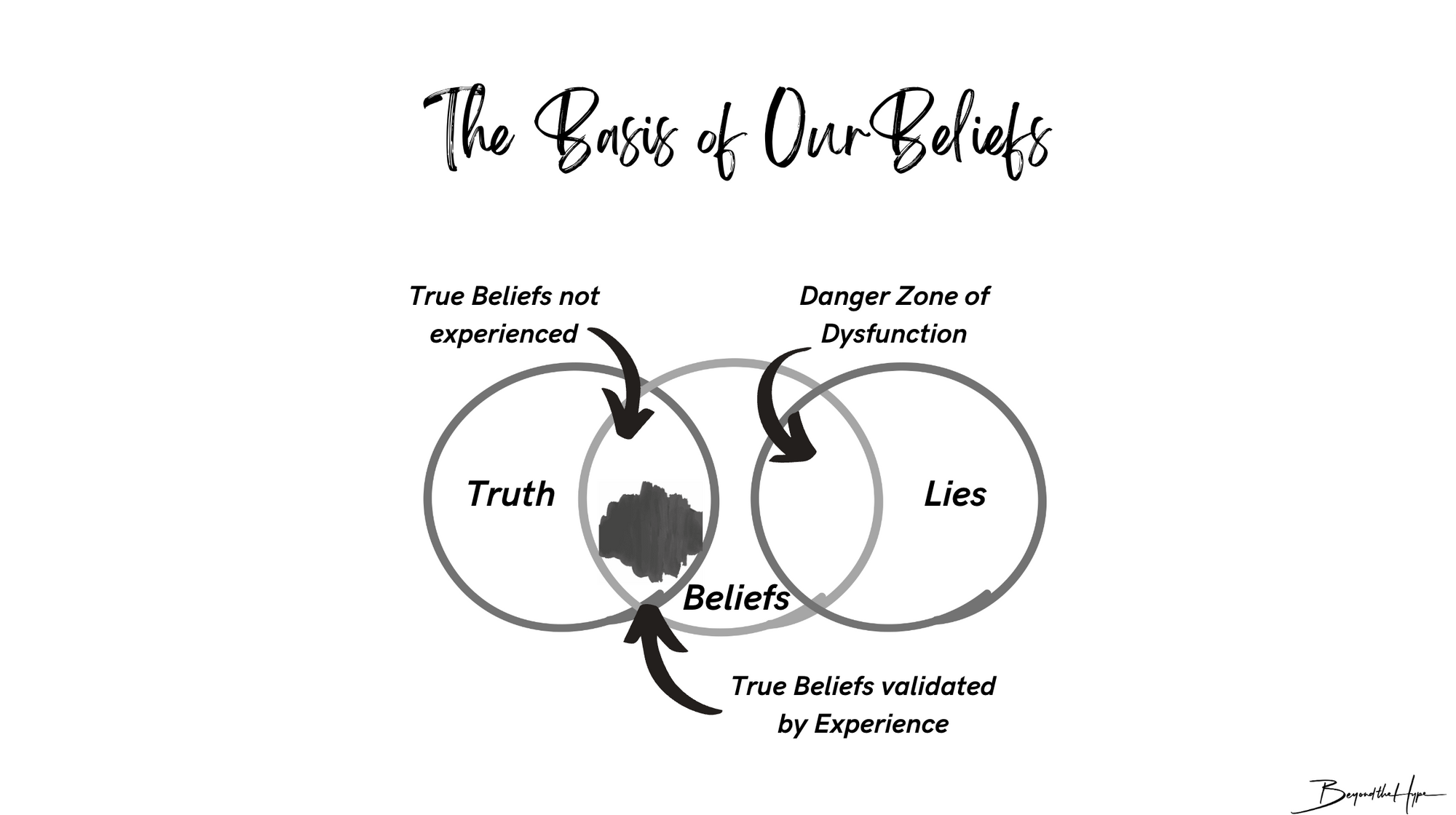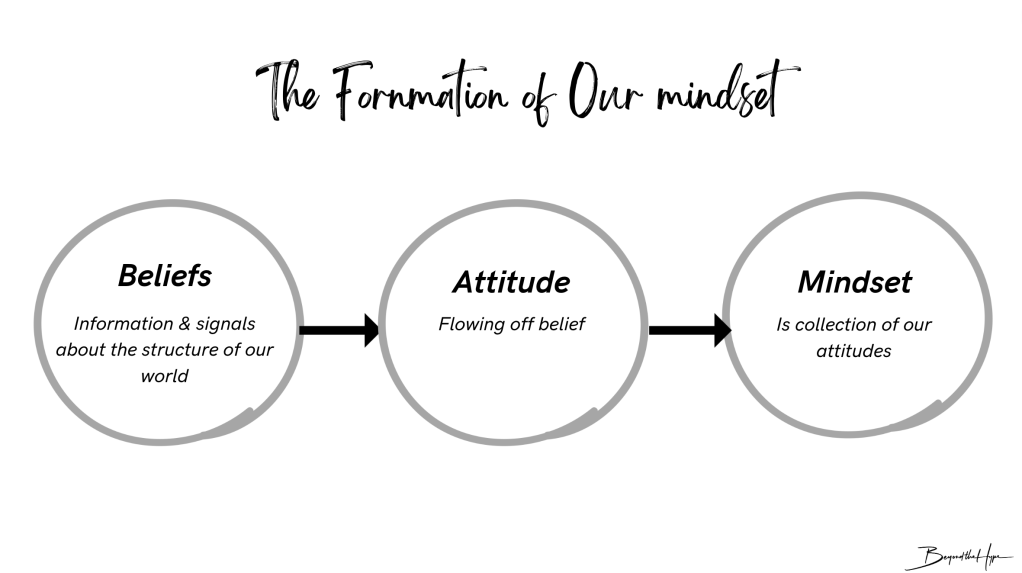Lies.
"If we desire greatness, we must embrace simplicity, goodness, and truth."

“What is the cost of lies? It’s not that we’ll mistake them for the truth. The real danger is that if we hear enough lies, then we no longer recognize the truth at all.” -HBO miniseries Chernobyl.
My speedometer hit 70 mph on a long stretch of the Italian countryside. I took a deep breath; my eyes fixed on the road ahead. A loud pop, equivalent to a gunshot, rang out as my world went into slow motion. My Mercedes 190 began to spin right. My mind raced to understand my malfunction. Well-trained enough not to slam on my brakes, I steered to regain control.
Conventional thinking is if my right front or a rear tire blows out, my car will veer to the right and vice versa. An initial response might be to slam on the brakes and turn your wheel hard left. Engaging in this maneuver could cause my car to spin sideways and roll over. At 70 mph, rolling my car might not be survivable.
I steered my car in the direction of the skid. I would lose complete control of the vehicle if my wheels locked up. My head was fixed on the horizon as I gently steered my car to stay on the road. Using only minimal braking, I fought to get my car under control. It felt like an eternity before the slow-motion spin ebbed, and my car became still.
I finally released my death grip on the steering wheel as my car settled into the middle of the road. 70 mph to a dead stop after spinning in multiple rotations had me a little spooked. Gratefully, the traffic was minimal, so my out-of-control spin wasn't pinballing me off other cars. I popped out of my Mercedes 190, grateful for the stability of German engineering, only to stare at a tire drastically shredded. A tire too damaged for a run-of-the-mill blowout. I mulled the implications as I began working on getting my vehicle out of the center of the road and back into operation. It took me a minute to reorient myself as traffic detoured around me.
After changing my tire, I returned to my current Army posting at Caserma Ederle, Vicenza - SETAF (Southern European Task Force). My strategic intelligence detachment was temporarily in residence. Despite keeping an extremely low profile, we still wore the uniform brass of US Army intelligence while on the post, putting a target on our backs. In those days, we often encountered a Soviet-funded guerilla group called the Red Brigades organized to harm and harass US forces in the region.
The Red Brigades (or Brigate Rosse or simply BR) was a far-left Marxist–Leninist armed group based in Italy responsible for numerous violent incidents, including the 1981 abduction of Brigadier General Dozier, then NATO Deputy Chief of Staff at Southern European land forces. The men kidnapped Dozier, leaving his wife bound and chained in their apartment. He was held for 42 days until January 1982, when a team of special Italian police operations successfully managed his rescue in Padua without firing a shot; the entire terrorist cell was captured.
As I pulled into the Ederle facility, my commander looked concerned. I was running an hour late from my countryside mishap. Instead of explaining, I showed my commander the remnants of my blown tire. I pointed out what I believed to be the cutting of my tire to induce the high-speed blowout. The Colonel quickly agreed. The incident had BR's fingerprints all over it. During my stay, BR operations were funded out of a tiny Dresden, East German house overseen by a KGB major named Vladimir Putin.
Understanding the consequences of my mishap and the investigation to the Army and our unit, my Colonel issued his order. "We will never mention this again. This never happened." A useful lie. But a lie nonetheless.
"Yes, sir," I replied. How many of life's little truths are buried and never spoken of again? But I remembered that day in the Italian countryside years later when Vladimir Putin ascended to power in Russia. I listen to our media seek to define Putin's KGB career as inconsequential. Really? What is the cost of that lie?
Our beliefs are crafted and formed out of the reality of our experiences. It is one thing to read about events and quite another to live them. That day my belief in my skills as a driver was validated along with my suspicions of being targeted by unfriendlies from the other side of the iron curtain.
Belief can be defined as the mental acceptance or conviction of some idea's truth or actuality. According to many philosophers, a belief is a “propositional attitude.” As a proposition, it has a specific meaning that can be expressed in a sentence. As an attitude, a belief involves a mental stance on its truth.
Beliefs are significant because we hold them to be accurate and provide the basis for understanding and acting within the world. Ideas, or perhaps more realistically, belief systems, provide the ‘mental scaffolding’ for appraising the environment, explaining new observations, and constructing a shared meaning of the world.
Believe has four overlapping functions. First, beliefs provide a consistent and coherent representation of our world and our place in it. This intuitively coherent and ever-present framework allows us to pursue goals, avoid threats, and regulate our behavior in response to environmental changes.
Second, as a stable representation, beliefs provide an explanatory framework for interpreting the world and processing incoming information.
Third, beliefs' explanatory framework helps us configure and calibrate perception, language, memory, and attention. Ideas provide the interpretive “lens” that shapes our experience of the world.
Finally, beliefs serve critical social functions. In addition to allowing us to navigate social relationships and interpret other people’s motivations, trusts provide a sense of community and security. Shared beliefs help define group norms and values.
Looking at the graphic #1 below, many of our beliefs are not substantiated by experience or truth. They remain unexposed by reality. Only a tiny portion of our true beliefs are battle-tested by experience, while others remain dormant.

Another slice of our beliefs is outright lies. These lies create massive dysfunction in our lives as we act on those beliefs and fail to achieve our desired results. For example, I told a friend the other day that her dating strategy was 100% successful at attracting men she didn't want. Consequently, she might want to consider changing her approach. She disagreed, opting to accept less than she merited and deserved saying that was the state of play in dating. The most damning of all lies are the ones we tell ourselves.
When we accept a belief as accurate, it immediately affects our thinking. New beliefs will contribute, depending on relevance, to configuring our perception, memory, and action. As a result, we will perceive the world in a way congruent with new and existing beliefs. There is considerable evidence that our beliefs can bias the perception and interpretation of information to stay consistent with our beliefs.
Ambiguous information, not necessarily experience, may be perceived in a way that fits our preconceptions as an elaboration and extension of our existing beliefs. Our belief systems contain lies shielded by bias. By updating our thoughts, a new belief also influences future attempts to explain unusual events and may constrain how other beliefs can be accepted.
Why is this discussion of beliefs so important? Check out the graphic below. Beliefs become attitudes that shape how we make sense of the world. A collection of attitudes construct our mindset that influences how we think, feel, and behave in any situation and dramatically impacts our success or failure.

"A wise man … proportions his belief to the evidence." --David Hume
With the importance of beliefs, attitude, and mindset firmly in hand, let me come back around to my open. What is the cost of lies? It’s not that we’ll mistake them for the truth. The real danger is that if we hear enough lies, we no longer recognize the truth.”
This three-sentence statement packed a punch. Its message stabbed me in the heart. The world I was bequeathing my grown children and their children was littered with falsehoods easily disproven by merely scratching the surface. In our hyper-communicative society, truth seems taken hostage to tales of friction and fiction. Hyperbole, propaganda, and lies smugly delivered by our politicians, leaders, and experts incited drama without recrimination or pushback. Literal nonsense wrapped in glossy packaging touted by credentialed talking heads served as science.
Our more thoughtful and learned men and women cowered in the corner, fearful of the mob’s rath from challenging the grandest stupidity. Ignorance or agnotology spread like wildfire. I believe foundation truths (see graphic #1 above) are required for an individual, culture, or society to build on, thrive, and prosper. Without those cornerstone truths, our choices about tomorrow were tainted or poisoned. Our fates would be twisted and mutilated by lies allowed to persist as truth. I felt the intense need to pass on a process for rescuing truth from the clutches of power-hungry pied pipers of propaganda. Why? Because lies create dysfunction and failure in our lives.
"If we desire greatness, we must embrace simplicity, goodness, and truth."
My forthcoming book "Beyond the Hype: Playing for Keeps" delivers on the promise of a process to rescue truth.
Until next time. Travel safe.

